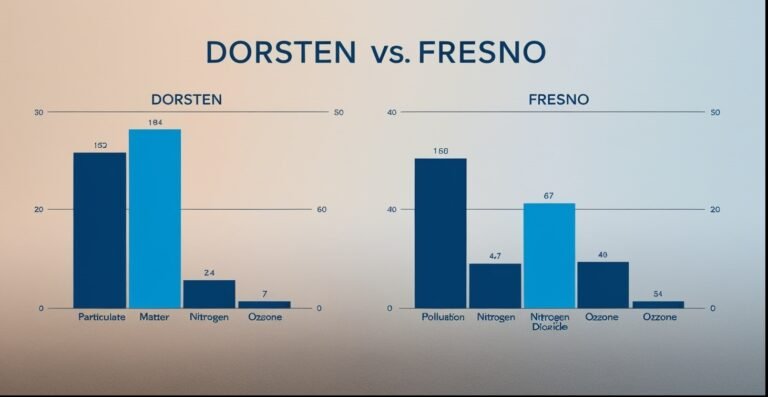Kano: A Comprehensive Guide to the Historic Nigerian City and Beyond
Understanding the Significance of Kano
Kano stands as one of Africa’s most historically significant cities, combining centuries of tradition with modern development. Located in northern Nigeria, Kano has evolved from an ancient trading post into a vibrant metropolis that serves as a cultural and economic powerhouse in West Africa.
Historical Evolution of Kano
The history of Kano dates back to the 7th century when it was established as a small settlement. By the 11th century, it had grown into a major trading hub in the trans-Saharan trade network. The city’s strategic location made it a crucial intersection for commerce between North Africa and sub-Saharan regions.
The Ancient Walls of Kano
The famous Kano City Walls, built between the 11th and 14th centuries, remain one of the most impressive monuments of pre-colonial Africa. These ancient fortifications, stretching over 14 kilometers, protected the city during its golden age and stand today as a testament to advanced African architecture and engineering.
Economic Significance
Modern Kano maintains its historical role as a commercial center while adapting to contemporary economic demands. Key aspects of its economy include:
- Manufacturing and industrial production, with numerous factories producing textiles, plastics, and processed foods
- Agricultural processing, leveraging the fertile farmlands surrounding the metropolitan area
- International trade connections, particularly with other African nations and Middle Eastern countries
- A bustling informal economy that provides employment for thousands of residents
Cultural Heritage and Traditions
The rich cultural heritage of Kano continues to thrive in the modern era. If you’re interested in exploring authentic African traditions and crafts, consider visiting 10for10 for expert insights into cultural tourism experiences.
Traditional Arts and Crafts
Kano’s artistic heritage includes:
- Leather working, producing world-renowned dyed leather goods
- Traditional textile dyeing, particularly the famous indigo pits
- Metalworking and jewelry making using age-old techniques
- Traditional architecture featuring unique Hausa design elements
The Kano Model: Innovation in Customer Satisfaction
Beyond the city itself, the term “Kano” has gained international recognition through the Kano model, developed by Professor Noriaki Kano. This model revolutionized the understanding of customer satisfaction in product development and service delivery.
Key Elements of the Kano Model
The model identifies several categories of customer requirements:
- Must-be qualities: Basic features customers expect without explicitly demanding
- One-dimensional qualities: Features that increase satisfaction proportionally with their implementation
- Attractive qualities: Unexpected features that delight customers
- Indifferent qualities: Aspects that neither satisfy nor dissatisfy customers
Modern Life in Kano
Today’s Kano represents a fascinating blend of traditional and contemporary lifestyles. The city faces various challenges and opportunities:
Urban Development
- Rapid population growth leading to urban expansion
- Infrastructure development projects improving city connectivity
- Modern shopping centers and entertainment facilities
- Educational institutions serving millions of students
Environmental Challenges
The city addresses several environmental concerns:
- Water resource management in a semi-arid climate
- Waste disposal and recycling initiatives
- Air quality improvement programs
- Green space preservation efforts
Tourism and Attractions
Kano offers numerous attractions for visitors:
Historical Sites
- Gidan Makama Museum
- Emir’s Palace
- Kurmi Market
- Ancient City Gates
Modern Attractions
- Ado Bayero Mall
- Zoo Road
- Various recreational parks
- Contemporary art galleries
Educational Hub
Kano serves as a major educational center in Nigeria:
- Bayero University
- Northwest University
- Numerous technical institutions
- Traditional Islamic schools
Technology and Innovation
The city embraces technological advancement:
- Growing tech startup ecosystem
- Digital transformation initiatives
- E-commerce platforms
- Innovation hubs and incubators
Social Life and Entertainment
Traditional Events
- Durbar festivals
- Religious celebrations
- Cultural performances
- Traditional sports events
Modern Entertainment
- Contemporary music scenes
- Cinema complexes
- Sports facilities
- Shopping centers
Transportation and Accessibility
Infrastructure
- Mallam Aminu Kano International Airport
- Railway connections
- Extensive road network
- Public transportation systems
Future Prospects
Kano continues to evolve and adapt to changing times:
Development Plans
- Smart city initiatives
- Sustainable urban development
- Economic diversification
- Cultural preservation projects
Healthcare and Wellness
The city’s healthcare system includes:
- Modern hospitals
- Traditional medicine practitioners
- Health education programs
- Medical research facilities
Business Opportunities
Kano offers various investment opportunities:
- Manufacturing sector
- Agricultural processing
- Real estate development
- Technology services
Community and Social Structure
Traditional Leadership
- The Emirate system
- Community organizations
- Religious institutions
- Cultural associations
Modern Governance
- Local government administration
- Urban planning committees
- Civil society organizations
- Development agencies
Conclusion
Kano represents a unique blend of historical significance and modern development. Its continued evolution while maintaining cultural heritage makes it a fascinating study in urban development and cultural preservation. Whether considering it as a historical center, an economic hub, or a cultural landmark, Kano continues to play a vital role in Nigeria’s development and West African affairs.
The city faces challenges but maintains its position as a crucial center for commerce, culture, and education in West Africa. As it moves forward, Kano’s ability to balance tradition with progress will determine its future success in an increasingly globalized world.
Understanding Kano’s significance helps appreciate not only its historical importance but also its potential for future development and influence in the region. The city’s journey from an ancient trading post to a modern metropolis offers valuable lessons in urban development, cultural preservation, and economic growth.







